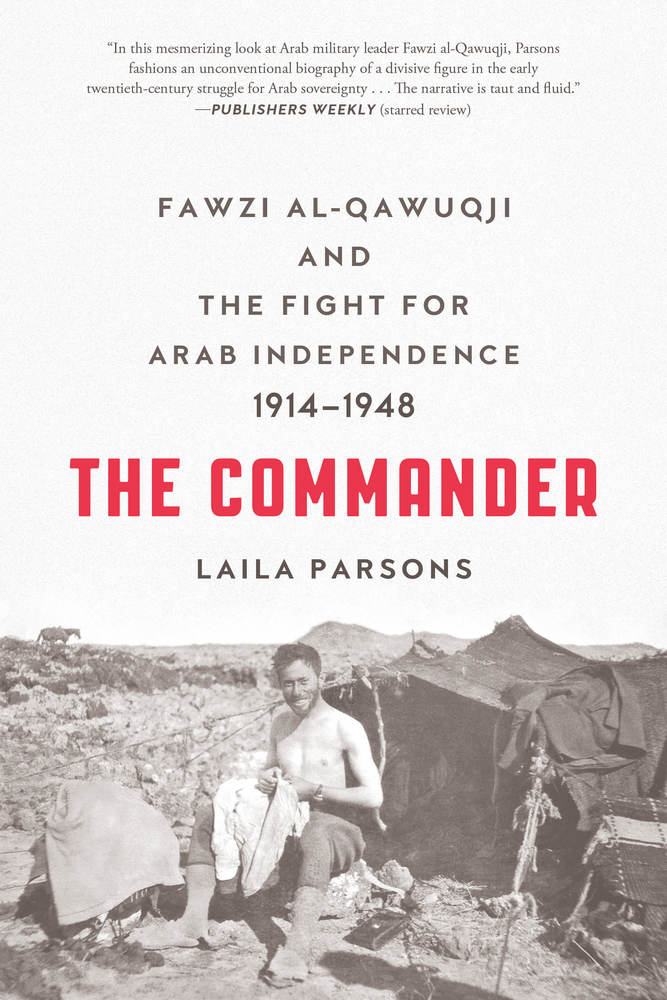Arab War Commander

By Jackson Holahan
When thinking of the leading figures in the 20th-century Arab nationalism movements, Fawzi al-Qawuqji is rarely a name the jumps to the top of the list. At first glance, that might seem odd given that he commanded of the Arab Liberation Army in the Arab-Israeli War in 1948. But history rarely lauds losers in battle, and this, as in most other cases, is no exception.
Nonetheless, Qawuqji’s life, and the remarkable period in Arab history that it spanned, is worth examining. Laila Parsons, professor of history and Islamic studies at McGill University, does just that in "The Commander: Fawzi al-Qawuqji and the Fight for Arab Independence 1914-1948." Born in Tripoli, Qawuqji began his martial life as a cadet in the Ottoman military school system in the early 20th century, where he met Arabs from across the reaches of the Turkish empire.
His service in the Ottoman army during World War I, where he received the Iron Cross, was the first chapter in a peripatetic military career typified by a commitment to pan-Arab nationalism above any strict country affiliation. After World War I, Qawuqji served as an officer in the French Syrian Legion, where he received the Legion d’Honneur, only to be a leader in the revolt against the French in Syria in 1925.
Following the unsuccessful revolt in Syria, he briefly sojourned in Saudi Arabia, where Ibn Saud hired him to train his unorganized guard into an institutional army. After losing a political battle with the Saudi minister of finance, Qawuqji did what he would do so many times in his life; packed his bags and set out for the next military adventure. He fought against the British twice, first in Palestine and later in Iraq; spent World War II in exile in Berlin, under both Nazi and Russian occupation; and was later selected to lead the Arab Liberation Army against Israeli forces following the adoption of United Nations Resolution 181(II).
Qawuqji was a stateless man, wanted by nearly every colonial power in the Middle East, and yet not fully trusted by many of the Arab leaders at the time. His humble upbringing and unabashed populism that “enabled him to connect directly with the common people” were the very same qualities that aroused suspicion among Arab elites who were uncertain of Qawuqji’s motivations and further concerned that his military successes could result in their eventual ouster.
Parsons, whose sources include unpublished PhD dissertations and firsthand materials from Qawuqji’s family, deserves credit for a meticulously researched account of an uncommon soldier who improvised his way through tumultuous times. An admirable academic rendering, however, does not always make for the smoothest of readings. Parsons is quick to include the names of nearly every bit player Qawuqji encountered in his life, which serves little purpose other than to force the reader to draft a ledger to keep track of it all. The three blank pages at the end of the book are the perfect venue to do just that.
Parsons’s great achievement is to show the fuller picture of a man who is primarily regarded as a failure in battle and, by extension, a failure to the Arab nationalist cause. It is telling that Qawuqji remained silent and uninvolved during what many consider to be the height of Arab nationalism after World War II. He was not involved in the Ba’ath Party, the formation of the Palestine Liberation Organization (PLO), or any of the country-specific coups or movements aiming to assert sovereignty in a post-war order.
However, Qawuqji’s diaries and memoirs depict a man keenly aware of his legacy and eager to dispel the notion that his military failures were his alone. While Qawuqji may not be a household name among the likes of Nasser and Sadat, recognizing his unique place within many of the earliest Arab nationalist efforts is critical in understanding the shape of the modern Middle East.